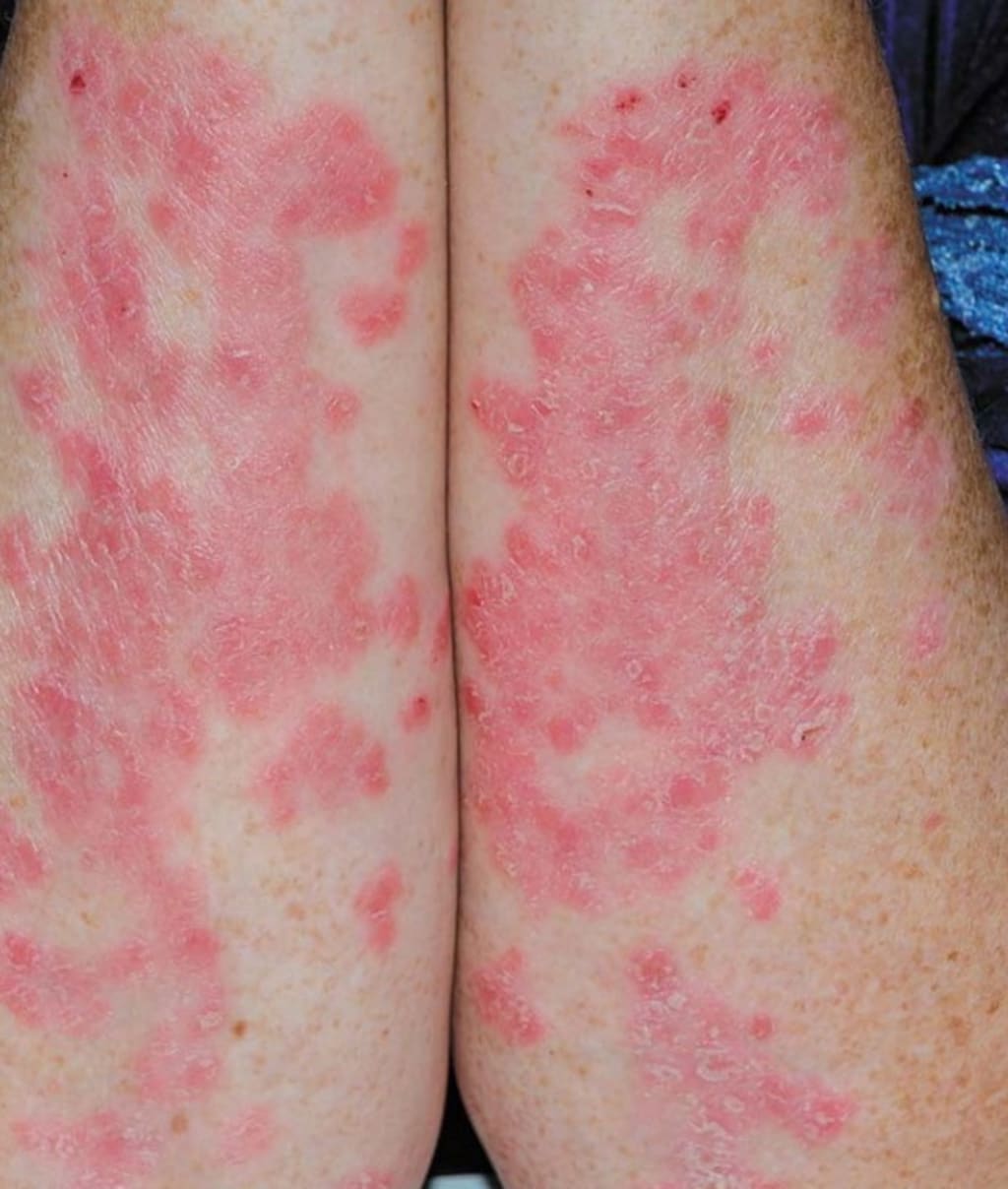DISEASES & CONDITIONS The wide-ranging effects of psoriasis
This common disorder poses challenges that run far deeper than the skin.

Decades ago, advertisements waxed on about the "heartbreak of psoriasis" — a skin disorder marked by noticeable patches of scaly skin — to the point that even people with garden-variety dry skin or dandruff worried they might also have the condition.
But public perception of psoriasis hasn't kept pace with the greatly expanded arsenal of effective treatments scientists have developed in recent years. Numbering more than eight million in the United States and 125 million worldwide, people with psoriasis still face other people's fear and misperceptions about their skin changes.
While it may seem like a skin-deep problem, psoriasis is a complicated disorder rooted in the immune system. It causes skin cells to multiply up to 10 times faster than normal, leading to itchy and painful plaques that can show up on any area of the body. These lesions can lead to sweeping physical and psychological effects, influencing what people wear, how often they leave their homes, and even their sex lives, says Dr. Martina Porter, a dermatologist at Harvard-affiliated Beth Israel Deaconess Medical Center.
"People generally know psoriasis patients can have a rash, but I'm not sure everyone understands how truly distressing this disease can be," says Dr. Porter, who is also director of the hospital's Clinical Laboratory for Epidemiology and Applied Research in Skin.
"A lot of people think, 'Oh, it's just your skin,' but obviously those people have never had a skin disease like this," she says. "Embarrassment is the predominant emotion."
Women's bigger burden
Helping dispel some of the stigma are current-day TV commercials for psoriasis medications featuring celebrities with the disorder, as well as organizations such as the National Psoriasis Foundation (NPF), which runs awareness campaigns to educate the public. "The commercials have definitely helped," Dr. Porter says. "Now, when people hear you have psoriasis, they're less likely to believe it's contagious. But when they see it, they're still somewhat alarmed."
It continues to alarm patients as well. Nearly six in 10 people with psoriasis report it's a significant problem in their everyday lives — and the effects are even greater in women, according to the NPF. Indeed, women with psoriasis are more likely to deal with depression than men, a 2022 study in the International Journal of Women's Dermatology suggests.
Some people avoid divulging their symptoms to family members and friends or explaining how the disease pummels their confidence, body image, and relationships. Psoriasis plaques located on the face or genitals, under the breasts, or between the buttocks can make intimacy especially off-putting. In a small 2021 study in the journal Dermatology and Therapy, psoriasis patients reported less satisfaction with their physical appearance and sex lives than people without the condition.
"It changes how you dress and where you go," Dr. Porter says. "Many people with psoriasis also feel uncomfortable having personal relationships or staying overnight because their skin sheds all over couches and beds. It can be hard to explain that you have psoriasis and not some contagious disease."
Make it a family affair. "I always tell patients that the best way to treat anything is to have family members involved," she says. With psoriasis, "that means they can help apply creams to your skin, pick up medications, or come to the doctor with you to discuss your treatment options."
See a dermatologist. Maybe you relied on your primary care doctor to diagnose and treat your psoriasis. That's fine. But if your symptoms aren't responding to topical remedies "or are become so overwhelming and frustrating that they're disrupting your life, ask for a referral to a dermatologist who can assess your situation and determine if systemic therapies can help," she says.
Take a fresh look at available treatments. Options have expanded dramatically in just the last several years — including an array of biologic drugs, which target parts of the immune system responsible for psoriasis — so it's wise to revisit what may work for you now.





Comments
There are no comments for this story
Be the first to respond and start the conversation.